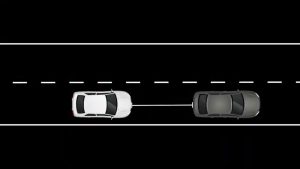
Overcoming Depression Without Medication: The Deep TMS Solution for Young Adults
Depression in young people is a ubiquitous problem that frequently looms large over what should be a dynamic and formative era of life. Although traditional methods usually call for medication, many young people and their families search for substitutes because of side effects, long-term dependence, or a wish for a different road to well-being. With transcranial magnetic stimulation showing great promise, the search for efficient, non-invasive treatments has produced major improvements. Deep TMS specifically provides a focused and unique method to treat the underlying neurological abnormalities linked with depression without resorting to pharmacological therapies. Resources like https://phoenix-hope.com/seattle/tms/ offer insightful analysis of some of the cutting-edge treatments for people looking at creative mental health solutions.
Understanding the Impact of Depression on Young Adults
Often disturbing academic achievement, social connections, and the development of a healthy sense of self, depression can show itself precisely in young adults. It can cause distrust, ongoing depression, irritability, variations in routines of sleep, and a loss of interest in once-liked activities. The emotional toll can be significant, impeding personal development and hence restricting potential. Early recognition of these symptoms is absolutely vital, as is knowledge that depression is a treatable illness rather than a sign of weakness. Often inadequate, traditional coping strategies leave young people feeling alone and misinterpreted.

Exploring Non-Medication Approaches to Wellness
Many young folks find great attraction in the concept of controlling depression without regular medication. This sometimes calls for a comprehensive approach including creative non-pharmacological treatments, lifestyle changes, and therapy interventions. Building resilience and advancing general well-being depend critically on approaches including psychotherapy, consistent exercise, balanced nutrition, meditation, and stress reduction techniques. Additional details on these non-invasive treatments may be accessed at https://phoenix-hope.com/seattle/tms/, stressing their possibility to provide young people looking for different alternatives a fresh horizon of hope.
How Deep TMS Works to Restore Balance
Deep TMS is a non-invasive magnetic field-based treatment meant to activate particular brain regions engaged in mood control. A coil is put on the head during a session to produce magnetic beats that gently pass through the head and turn on neural pathways. These are creating electrical currents in the brain that help to restore brain activity in areas that are underactive in those with sadness. Deep TMS differs from conventional TMS in that it uses a special coil design that enables more extended brain areas by deeper and broader stimulation.
Recovering from depression without drugs calls for knowledge, patience, and access to creative, workable answers. For young people, Deep TMS is an interesting substitute since it provides a non-invasive, focused method to restore brain balance and reduce depressed symptoms. Deep TMS helps young people to free themselves from the limitations of daily medicine by addressing the fundamental neurological causes of depression.


